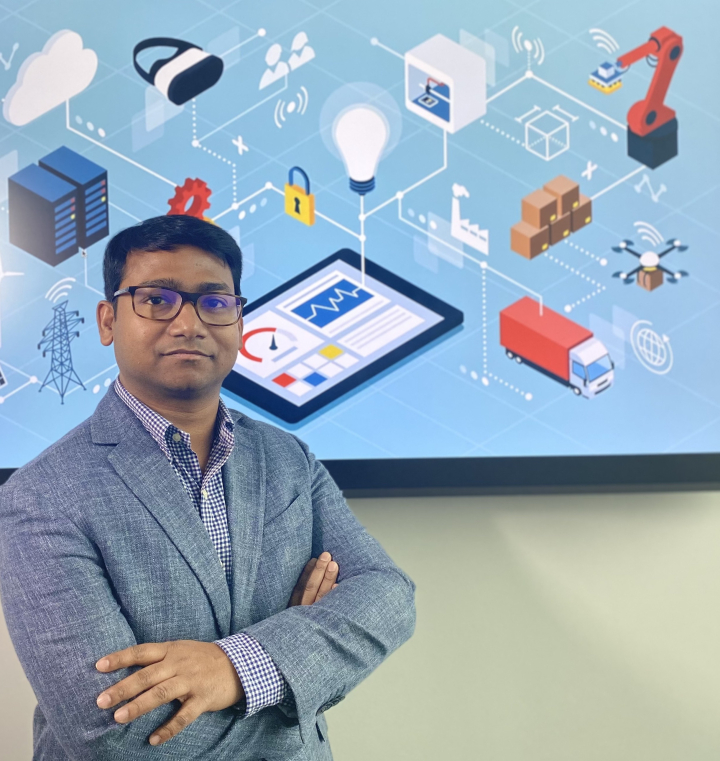Nirupam Roy Receives NSF CAREER Award to Advance Ambient Computing
A University of Maryland expert in wireless networking and mobile computing will use funding from the National Science Foundation (NSF) to advance his research in ambient computing, an invisible yet useful concept of blending computing power into our everyday lives by embedding it into our surroundings.
Nirupam Roy, an assistant professor of computer science with an appointment in the University of Maryland Institute for Advanced Computer Studies, is principal investigator of the NSF Faculty Early Career Development Program (CAREER) award, expected to total $601K over the next five years.
Roy, who is also a member of the Maryland Cybersecurity Center, says the foundation of ambient computing rests on its closer integration with humans.
Acoustics already play a crucial role in connecting humans to computing infrastructure, he explains. Voice assistants, such as Amazon Echo and Google Home, create a natural way to interface with Internet of Things (IoT) devices, smart earphones are emerging with sensing and assisting skills, and everyday acoustic augmented reality is practically around the corner. 
With the NSF funding, Roy foresees a new frontier in ambient computing by enabling advanced acoustic sensing and inference on low-power and battery-free computing platforms embedded in everyday objects and the environment—creating a paradigm called acoustic ambient computing.
And while voice interfaces have already opened enormous possibilities, Roy says, the ability to active technologies via human expressions through gestures, movements, gait and micro-motions remains untapped.
“We envision creating a comprehensive interaction paradigm with the acoustic ambient computing environments that span our living spaces without requiring any on-body devices,” he says. “We aim to sense, capture, and comprehend human activities, motions, gestures and behavior at the infrastructure level spanning environments beyond homes.”
Target application spaces include data-driven health technologies and physical recovery tracking at hospitals, immersive assistance at workshops, positive behavioral reinforcements at office and collaborative workplaces, and even at public open spaces such as parks or bus stops.
The end goal, Roy says, is to create essential frameworks for retrofitting existing buildings and augmenting new indoor and outdoor environments to turn them into interactive smart spaces. This could also potentially create new jobs for moderately skilled technicians.
“I believe we’ll soon have the capacity to redefine the wearable-oriented view of smart technologies and open up the benefits of computing to the masses by injecting intelligence into the environment,” he says.
—Story by Melissa Brachfeld, UMIACS communications group
"CAREER: Acoustic Ambient Computing: Algorithms, Architectures, and Prototypes" is supported by NSF grant #2238433 from the NSF’s Division of Computer and Network Systems.
PI: Nirupam Roy, assistant professor of computer science with appointments in the University of Maryland Institute for Advanced Computer Studies and the Maryland Cybersecurity Center.
About the CAREER award: The Faculty Early Career Development (CAREER) Program is an NSF activity that offers the foundation’s most prestigious awards in support of junior faculty who exemplify the role of teacher-scholars through outstanding research, excellent education and the integration of education and research within the context of the mission of their organization.
The Department welcomes comments, suggestions and corrections. Send email to editor [-at-] cs [dot] umd [dot] edu.
